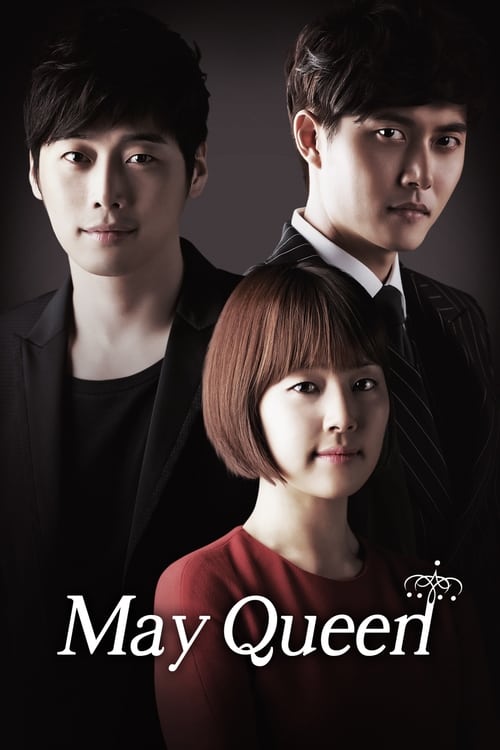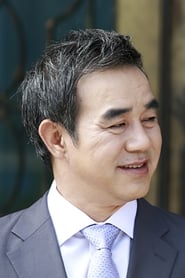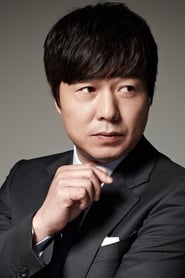
Ask Your Own Question
What is the plot?
The story of "May Queen" begins in the 1970s in a small fishing village in South Korea, where a young girl named Kim Hwa-young dreams of becoming a successful fisherman like her father. Hwa-young is a spirited and determined girl, often seen helping her father on the boat. Her father, however, is struggling with the harsh realities of fishing and the changing tides of the industry. Hwa-young's family is poor, and her father's health is deteriorating, which adds to the family's struggles.
As Hwa-young grows up, she develops a close friendship with a boy named Lee Seung-jae, who is the son of a wealthy family in the village. Their bond deepens, and they share dreams of a better future. However, societal pressures and class differences create tension between them. Seung-jae's mother disapproves of their friendship, believing that Hwa-young is not suitable for her son due to her family's financial struggles.
Hwa-young's life takes a turn when she learns about a fishing competition that could change her family's fortunes. Determined to win, she trains rigorously, showcasing her skills and passion for fishing. The competition day arrives, and Hwa-young faces off against other skilled fishermen, including Seung-jae's father. The tension is palpable as the villagers gather to witness the event. Hwa-young's determination shines through, and she manages to catch the largest fish, winning the competition and earning respect from the villagers.
However, her victory is short-lived as her father suffers a heart attack shortly after the competition. Hwa-young is devastated and feels a heavy burden on her shoulders to support her family. In the wake of her father's death, Hwa-young's relationship with Seung-jae becomes strained. Seung-jae's family pressures him to pursue a more stable career, and he begins to distance himself from Hwa-young, who is now focused on taking care of her family.
As Hwa-young navigates her grief and responsibilities, she encounters a new character, Jang Soo, a charismatic and ambitious fisherman who sees potential in her. Jang Soo encourages Hwa-young to join him in a new fishing venture, promising her a chance to make a name for herself in the industry. Torn between her loyalty to her family and her desire for independence, Hwa-young ultimately decides to partner with Jang Soo, leading to a new chapter in her life.
Hwa-young and Jang Soo's partnership flourishes, and they begin to gain recognition in the fishing community. However, their success attracts jealousy and rivalry from other fishermen, including Seung-jae's father, who feels threatened by their growing influence. Tensions escalate as Jang Soo and Hwa-young face sabotage and challenges from their competitors.
Meanwhile, Seung-jae struggles with his feelings for Hwa-young and the expectations placed upon him by his family. He tries to reconnect with her, but Hwa-young is focused on her business and feels betrayed by his earlier abandonment. Their relationship becomes increasingly complicated as they both grapple with their ambitions and the societal pressures surrounding them.
As the story progresses, Hwa-young faces a major setback when a storm damages their fishing equipment, threatening their livelihood. In a desperate attempt to save their business, Hwa-young and Jang Soo work tirelessly to repair the damage, showcasing their resilience and determination. During this time, Hwa-young begins to realize her true feelings for Jang Soo, but she is still haunted by her past with Seung-jae.
The climax of the story occurs when a major fishing competition is announced, and Hwa-young sees it as an opportunity to prove herself once again. She and Jang Soo prepare rigorously, but Seung-jae also enters the competition, determined to win and reclaim his place in the fishing community. The competition day is filled with high stakes, and the atmosphere is charged with tension as the villagers gather to witness the event.
During the competition, Hwa-young and Seung-jae find themselves in direct rivalry. As they compete, old feelings resurface, and they confront their unresolved emotions. The competition is fierce, and both Hwa-young and Seung-jae push themselves to their limits. In a dramatic turn of events, Hwa-young manages to catch the largest fish once again, but this time, she realizes that her victory is bittersweet.
In the aftermath of the competition, Hwa-young must confront her feelings for both Jang Soo and Seung-jae. She ultimately chooses to pursue her own path, embracing her independence and the life she has built for herself. The story concludes with Hwa-young standing on the shore, looking out at the sea, symbolizing her journey of self-discovery and the challenges she has overcome. The relationships she has forged and the lessons she has learned shape her into a strong and resilient woman, ready to face whatever the future holds.
What is the ending?
In the ending of "May Queen," the story culminates in a series of emotional confrontations and resolutions. The main character, Jang Mi, faces the consequences of her choices and the love triangle involving her, the ambitious and determined Seung Jae, and the kind-hearted but conflicted Dong Soo. Ultimately, Jang Mi makes a choice that leads to a bittersweet resolution for all involved, highlighting themes of love, sacrifice, and the pursuit of dreams.
As the final episodes unfold, we see Jang Mi grappling with her feelings for both men. The tension escalates when she realizes that her decisions will not only affect her future but also the lives of Seung Jae and Dong Soo. In a pivotal scene, Jang Mi stands at a crossroads, both literally and metaphorically, as she reflects on her journey and the sacrifices she has made for her ambitions.
In a heart-wrenching moment, Jang Mi confronts Seung Jae, who has been a driving force in her life, pushing her to achieve her dreams. They share a passionate exchange, filled with both love and regret, as they acknowledge the impact they have had on each other's lives. Seung Jae, understanding the weight of Jang Mi's aspirations, ultimately encourages her to follow her heart, even if it means letting him go.
Meanwhile, Dong Soo, who has always been a source of unwavering support for Jang Mi, faces his own emotional turmoil. He has loved her quietly, often sacrificing his own happiness for her sake. In the final scenes, he confronts Jang Mi, expressing his feelings and the pain of watching her struggle with her choices. Their conversation is filled with raw emotion, as Dong Soo reveals his desire for her happiness, even if it means she chooses Seung Jae.
The climax of the series occurs during a dramatic confrontation at a significant location that symbolizes Jang Mi's journey. Here, she must make a choice that will define her future. The scene is charged with tension as both men stand by her side, each representing different paths in her life. Jang Mi ultimately chooses to pursue her dreams, which leads her to a new beginning, leaving both men behind but carrying their love and lessons with her.
In the final moments, we see Jang Mi stepping into a new chapter of her life, filled with hope and determination. Seung Jae, though heartbroken, finds solace in knowing that he played a crucial role in her growth. Dong Soo, while saddened, also finds a sense of closure, realizing that true love sometimes means letting go.
The series concludes with a montage of Jang Mi's journey, showcasing her achievements and the impact of her choices on her life and the lives of those she loves. Each character's fate is intertwined with Jang Mi's decision, emphasizing the themes of love, ambition, and the sacrifices made along the way.
Is there a post-credit scene?
The TV show "May Queen," produced in 2012, does not have a post-credit scene. The series concludes with its final episode, wrapping up the storylines of the main characters without any additional scenes after the credits. The focus remains on the resolution of the central conflicts and the emotional journeys of the characters, particularly the protagonist, who has faced numerous challenges throughout the series. The ending emphasizes themes of love, sacrifice, and personal growth, providing closure to the viewers without the need for a post-credit sequence.
What motivates the character of Jang Joo-hee throughout the series?
Jang Joo-hee is driven by her desire to prove herself in a male-dominated world, particularly in the fishing industry. Her determination to succeed stems from her childhood experiences and the hardships she faced, including her family's struggles. As she navigates her relationships and the challenges of her career, her motivations evolve, reflecting her growth and resilience.
How does the relationship between Jang Joo-hee and Lee Seung-jae develop over the course of the series?
Jang Joo-hee and Lee Seung-jae's relationship begins with a strong friendship rooted in mutual respect and shared dreams. As they face various challenges, including personal and professional obstacles, their bond deepens. Emotional turmoil, misunderstandings, and external pressures test their connection, leading to moments of tension and reconciliation that highlight their commitment to each other.
What role does the fishing competition play in the characters' development?
The fishing competition serves as a pivotal plot device that catalyzes character development and conflict. It brings out the competitive nature of the characters, particularly Jang Joo-hee and her rivals. The stakes of the competition force them to confront their fears, insecurities, and ambitions, ultimately leading to personal growth and revelations about their true desires and relationships.
How does the character of Kim Ji-won influence the dynamics among the main characters?
Kim Ji-won acts as a catalyst for conflict and tension among the main characters. Her ambitions and rivalry with Jang Joo-hee create a competitive atmosphere that drives the narrative forward. Ji-won's actions often reflect her insecurities and desire for validation, impacting her relationships with others, particularly with Lee Seung-jae, and adding layers of complexity to the story.
What are the key turning points in Jang Joo-hee's journey to becoming a successful fisherwoman?
Key turning points in Jang Joo-hee's journey include her initial struggles to gain respect in the fishing community, her decision to enter the fishing competition, and her confrontations with rivals. Each challenge she faces, from personal losses to professional setbacks, shapes her resilience and determination. These moments of triumph and failure are crucial in her transformation from an underdog to a respected figure in the industry.
Is this family friendly?
"May Queen," produced in 2012, is a melodrama that explores themes of love, betrayal, and ambition against the backdrop of the fishing industry. While the show has a compelling narrative, it does contain some elements that may not be suitable for children or sensitive viewers.
-
Family Conflict: The series features intense family dynamics, including arguments and emotional confrontations that may be distressing for younger viewers.
-
Romantic Relationships: There are complex romantic entanglements that involve jealousy and heartbreak, which could be confusing or upsetting for children.
-
Loss and Grief: Characters experience significant loss, including the death of loved ones, which is portrayed with emotional weight and could be upsetting.
-
Socioeconomic Struggles: The show depicts the harsh realities of life in a fishing village, including financial struggles and the impact of these on family relationships.
-
Violence: There are scenes that may include physical confrontations or threats, which could be alarming for younger audiences.
-
Emotional Turmoil: Characters often face deep emotional struggles, including feelings of betrayal, abandonment, and despair, which may resonate strongly with sensitive viewers.
Overall, while "May Queen" offers a rich narrative, its themes and emotional depth may not be suitable for all audiences, particularly children.






























